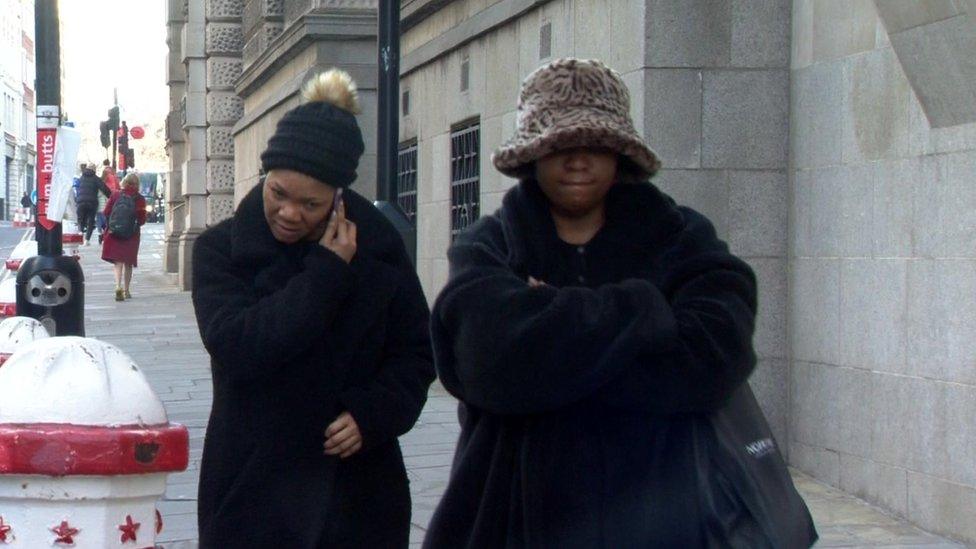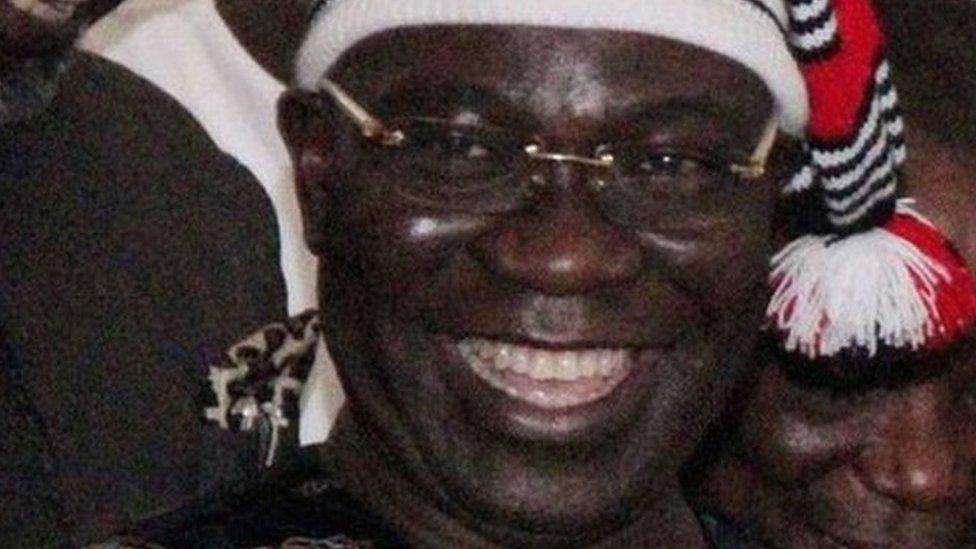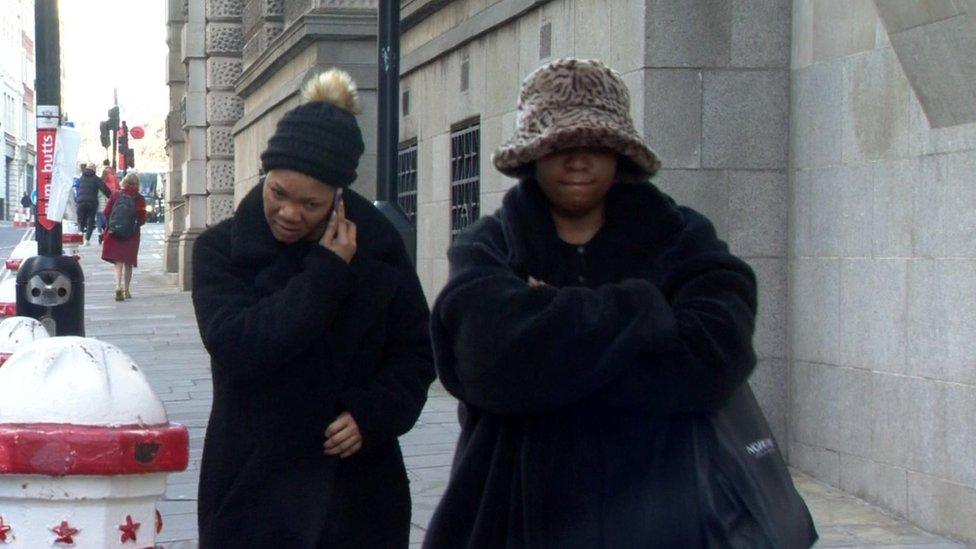Nigerian street trader gives evidence at organ donation plot trial
- Published

Defendants Beatrice Ekweremadu (left) and Sonia Ekweremadu outside the Old Bailey
A Nigerian market trader allegedly trafficked to London has told a jury he was shocked when a doctor revealed he was there to donate a kidney.
The man, who cannot be named for legal reasons, said he thought he was coming to the UK for work.
At the Old Bailey, Nigerian politician Ike Ekweremadu, 60, has denied breaking modern slavery laws.
He is accused of bringing the 21-year-old to the UK to provide a kidney for his daughter Sonia.
His wife Beatrice, 56, daughter Sonia, 25, and associate Dr Obinna Obeta, 50, also deny conspiring to arrange or facilitate the travel of the young man to Britain with a view to his exploitation.
The prosecution claims Mr Ekweremadu paid middle-men thousands of pounds to find a donor in Nigeria and arrange the kidney transplant in Britain.
'I was crying'
The street trader described being "controlled" and was told to lie about having a family connection with the Ekweremadu family before a consultation at the Royal Free Hospital, in north London, in February 2022.
The court heard when the doctor told him he was there to donate a kidney, he was "shocked".
"I was crying when he told me about that. I told him that I don't know anything about a kidney transplant," he said.
However, concerned at his young age and apparent lack of awareness of the process, two doctors said the transplant should not take place.

Ike Ekweremadu has been a senator in Nigeria since 2003
Giving evidence via a video-link, the Nigerian told the jury he grew up in a remote village without electricity or running water.
Aged 15, he moved to Lagos to work with an uncle selling mobile phone accessories in a market. Six years later, he was offered the opportunity to travel to London by the defendant Dr Obeta, described by the prosecution as Mr Ekweremadu's "fixer".
"The first day that he called me all he told me was it was about work," the alleged trafficking victim said.
"He asked me not to tell people that I'm coming to the UK."
After a successful passport and visa application he flew to London, the court heard. During a meal there, he was told to "dress up" and met a woman he identified in court as Sonia Ekweremadu.
Ms Ekweremadu has a serious kidney condition requiring dialysis, and a transplant, jurors were told.
A picture was taken of them together. The jury has been told this was to create a false photographic "back story" that they knew each other.
Despite the decision not to go ahead with the transplant, the trader gave evidence that he had later been examined by two other unidentified doctors at the home of Dr Obeta, who he also accused of making him work as a "house boy" and not paying him, jurors were told.
He then ran away from the house, sleeping rough and walking for two days through London, the court heard.
Finally he said "the cold was too much. The cold almost killed me that day. That's why I had no choice".
He walked into a police station in Staines, triggering a police investigation that led to this trial.
The trial continues.

Follow BBC London on Facebook, external, Twitter , externaland Instagram, external. Send your story ideas to hellobbclondon@bbc.co.uk
Related topics
- Published6 February 2023
